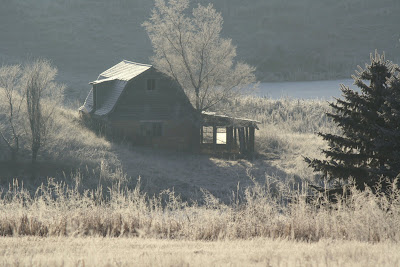Here is a picture of the Enigma Code Machine with which the Germans in World War II placed their confidence thinking that coded messages produced with it could never be read by anyone other than those who possessed the secret. But its secrets were cracked and our military went on to read important details of Nazi war planning. I wrote in the last entry where a retired curator of the Smithsonian told us that Indians were successfully used as code talkers in not just World War II but also in World War I.
It so happened as I was doing some research for another topic in the archives of The Stars and Stripes newspaper I ran across this article from the Friday, January 10, 1919 issue that bore the headline Boche Wire Tappers Run Into New Code.
It read as follows: "Because of the nature of the country over which American troops fought in the Meuse-Argonne offensive, the Germans found it easy to cut in on our field telephone wires.
The commander of one brigade of artillery attached to an American division was particularly annoyed by enemy wire-tappers in a heavily wooded section of the Argonne. Code messages from artillery observers were being intercepted by Boche listeners-in, and the commander knew, as all armies know, that no code is impregnable when experts get working on it.
The artillery commander took up with the colonel of one of the line regiments the question of the Huns' wire tapping activities. And the colonel hit upon an idea.
Two Indians, both of proud Sioux lineage, members of one of his companies, were assigned as telephone operators. One was to go forward with the artillery observer, the other to remain at the brigade receiving end of the wire which the artillery commander was certain the Germans had that day tapped somewhere along the line.
The two Sioux, both intelligent, willing men, were sent for and given instructions. Those instructions were to transmit, in the language of their fathers, all messages given them at their respective posts.
Now, when two Sioux Indians get talking together in their own tongue, what they say sounds very much like code, but isn't. Anyway it raised hob with the code experts of certain Prussian guard units.
The Sioux stuck on their jobs for three days and nights. They and the artillery commander and their own colonel enjoyed the situation immensely. If the Germans got any fun out of it they kept it to themselves."
It so happened as I was doing some research for another topic in the archives of The Stars and Stripes newspaper I ran across this article from the Friday, January 10, 1919 issue that bore the headline Boche Wire Tappers Run Into New Code.
It read as follows: "Because of the nature of the country over which American troops fought in the Meuse-Argonne offensive, the Germans found it easy to cut in on our field telephone wires.
The commander of one brigade of artillery attached to an American division was particularly annoyed by enemy wire-tappers in a heavily wooded section of the Argonne. Code messages from artillery observers were being intercepted by Boche listeners-in, and the commander knew, as all armies know, that no code is impregnable when experts get working on it.
The artillery commander took up with the colonel of one of the line regiments the question of the Huns' wire tapping activities. And the colonel hit upon an idea.
Two Indians, both of proud Sioux lineage, members of one of his companies, were assigned as telephone operators. One was to go forward with the artillery observer, the other to remain at the brigade receiving end of the wire which the artillery commander was certain the Germans had that day tapped somewhere along the line.
The two Sioux, both intelligent, willing men, were sent for and given instructions. Those instructions were to transmit, in the language of their fathers, all messages given them at their respective posts.
Now, when two Sioux Indians get talking together in their own tongue, what they say sounds very much like code, but isn't. Anyway it raised hob with the code experts of certain Prussian guard units.
The Sioux stuck on their jobs for three days and nights. They and the artillery commander and their own colonel enjoyed the situation immensely. If the Germans got any fun out of it they kept it to themselves."












